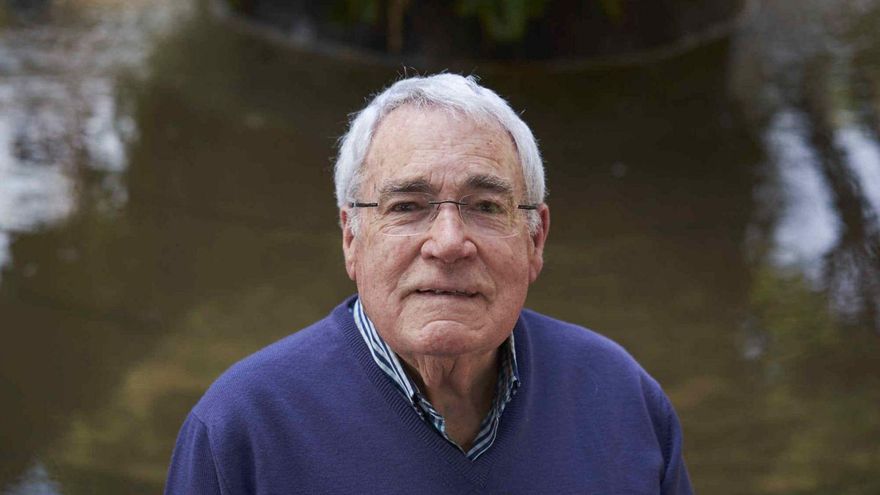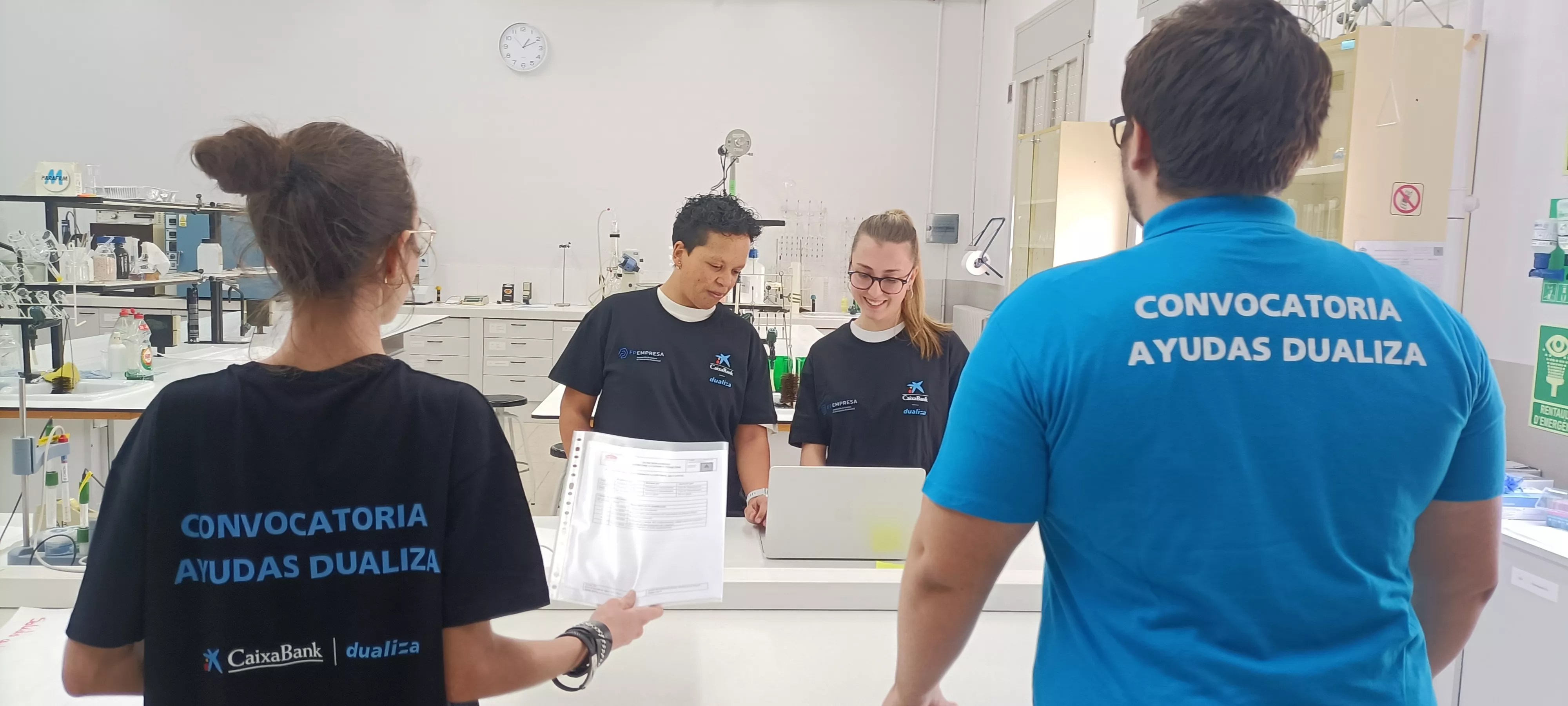
He says he has lived two lives, but at 81 years old he treasures even more: that of the boy who lost his house in a fire, that of the son who looked for his lost father, that of the unforgettable teacher, that of the off-road journalist, that of the beaten father for the death of his two children, that of the tireless traveler, that of the philanthropist.
Salvador Pérez became on March 19, 2022 the first official chronicler in the history of The Guancha. A more than deserved honorary position for the person who has written more and better about this municipality. He started at the age of 14 in the weekly Aire Libre and at 81, with countless articles and several books behind him, he already has new works in mind about the Unión y Fraternidad Cultural Center or the famous La Guancha Fairs. Salvador Pérez often says that he has lived two lives, before and after the tragic death in a traffic accident of his two children Carlos Salvador and Beatriz, but a conversation with this lucid and loquacious man allows us to discover that, in reality, he treasures many more lives in his life. The one about the boy who lost his house due to a fire, ate freshly milked goat’s milk and spent two months in bed with lung disease; that of the son who searched for a missing father; that of the unforgettable teacher; that of the cultural promoter; that of the off-road journalist; that of the father struck by the death of his children; that of the tireless traveler through 58 countries; that of the cancer survivor; the philanthropist… The story of a universal guanchero who has known how to remake himself despite having, so many times, life against him.
The versatile Salvador Pérez has always been faithful to his life motto, a phrase from the Portuguese poet Fernando Pessoa: “Put everything you are in the least you do.” And that has allowed him to be an example of dedication and good work in two professions as vocational as teaching and journalism. Two passions that he never completely abandoned. He is not a historian, but he makes up for it with his “love for the past, for history big or small.” He is not a historian, but his lives are an endless source of experiences and anecdotes that he recounts passionately and generously.
«I was obsessed with writing and when I was barely 14 years old I got into adventure of writing chronicles of football matches of a youth team and my first published article, in the weekly sports magazine Aire Libre, was titled La Guancha needs a soccer field. Now he has a wonderful one », he celebrates. Since then, the list of media in which he has collaborated is enormous: La Tarde, Jornada Deportiva, El Eco de Canarias, Efe, La Gaceta de Canarias, Radio Juventud de Tenerife or THE DAY, where he demonstrated his enormous capacity for work. He was a special envoy to Germany, Venezuela, Madeira or Madrid and, when he signed with the pseudonym Paladín, he met Juan Cruz Ruiz, «a boy who, at just 13 years old, dictated his articles to us by telephone from Puerto de la Cruz. And the chicharreros could not believe that that child wrote so well ».
still like student teacher, was already an SUV in the newsroom. He used to do the changing rooms for CD Tenerife matches, “something that is no longer used, but at that time you could get in there to interview the half-naked players.” He also wrote about culture and quotes with special affection an interview he did with Nuria Espert in her dressing room at the Guimera Theater.
After doing the military service in Melilla, where he was “absolutely happy for 16 months”, began his professional career as a teacher, but without ever abandoning his collaborations with the press. At that stage of combining two great passions, Salvador Pérez was able to interview all the candidates of the first local elections of 1979, “from Santiago del Teide to Tacoronte.” He made the first interviews in his life with politicians such as Paco Afonso, Paulino Rivero or “the father of the current mayor of Santiago del Teide, Emilio Navarro”. That passion for the municipalities of the North, with La Guancha at the head, convinced Francisco Ayala, who was editor-in-chief and director of EL DÍA, to create “the first pages dedicated exclusively to the peoples of the North and the South.”
He also created a section, Children’s Time, in which he gave a voice to thousands of schoolchildren. And he touched practically all the sticks of journalism, from the chronicles of the plenary sessions of the towns to the interviews with personalities of the stature of Adolfo Suarez, Felipe González, Manuel Fraga, Camilo José Cela or Rafael Alberti. From the hand of his remembered friend Paco Afonso, sneaked into a meeting at the Ministry of Financein Madrid, as the ephemeral “mayor of Punta Brava” and while the politicians talked, he took notes for the newspaper.
It was a exciting journalistic life that Salvador Pérez combined with his daily teaching work. During the lunch break or after school, he found time to go to a municipality to collect news and reports, “and in all of them he had sources in power and in the opposition.” His articles were sent to the newspaper delivery men in the days when there was no fax and no internet was conceivable.
He left his mark on journalism, but his vocation with capital letters was teaching. He always repeats that “there was no one at school happier than me.” And perhaps he succeeded because he always wanted to get to know all of his students well, so he knew how to reach them and organize the groups in the best way. “He made them write an essay about them and answer a questionnaire with more than a hundred questions, and that way he knew what each one was like,” he details.
He went through educational centers in Las Palmas de Gran Canaria, San Mateo, Icod de los Vinos and, above all, The lagoonwhere he ended up as a high school teacher at the Cabrera Pinto Institute. He organized cultural trips with up to a hundred students and had the opportunity to take some of his students to Argentina, on “a memorable trip” in which they were even received by President Carlos Menem. But his educational stage was twisted by the famous La Neja Case, one of the “saddest and most painful” events of his life. A conflict of 16 teachers with the Department of Education that generated a media scandal and ended, at the beginning of 1996, with a confinement that lasted 13 days and 12 nights in the office of the counselor José Mendoza. Finally they won and their rights as teachers were recognized.
His personal life was never easy and in 1968 he had to face “the infinite trauma» of the disappearance of his father, Salvador Pérez León: «His company collapsed and he disappeared in September 1968. He never contacted us again. I even went to Venezuela to look for him. But nothing. It was as if the earth had swallowed him.”
After overcoming a traffic accident on December 28, 1997 in which he saw death up close, on June 1, 2001 came the great tragedy of his life: the death of his two sons, with just 27 and 25 years of age, in the fullness of their existence. A fact about which she has written that “there are no words to define so much orphanhood”. Salvador and Aurora, the woman with whom he will celebrate 50 years of marriage next June, had to “invent another life” after the tragedy, “thanks to love for culture, for education and for helping others.” After that terrible blow, they decided not to give up: “We told ourselves that we had to continue living, and we have achieved it thanks to our families and friends,” explains Salvador Pérez, who has also been able to overcome, in 2016, prostate cancer with the help of a former student who is now her doctor.
Out of that terrible loss came the Carlos Salvador and Beatriz Canarian Foundationwhich since 2006 has helped nearly 700 students from all the Islands to study Canary Islands; has shipped large quantities of school supplies to South America; it has built schools in Peru and Paraguay, and has drilled a well to give a Gambian village water. They also turned to the palm students after the volcanic eruption, and in just a few days, they sent 12,000 euros to the students of the institutes of Los Llanos, El Paso and Tazacorte. And despite everything he has experienced, Salvador Pérez still smiles, shares, tells and helps, with the serenity of someone who knows that the saddest days are over.
















